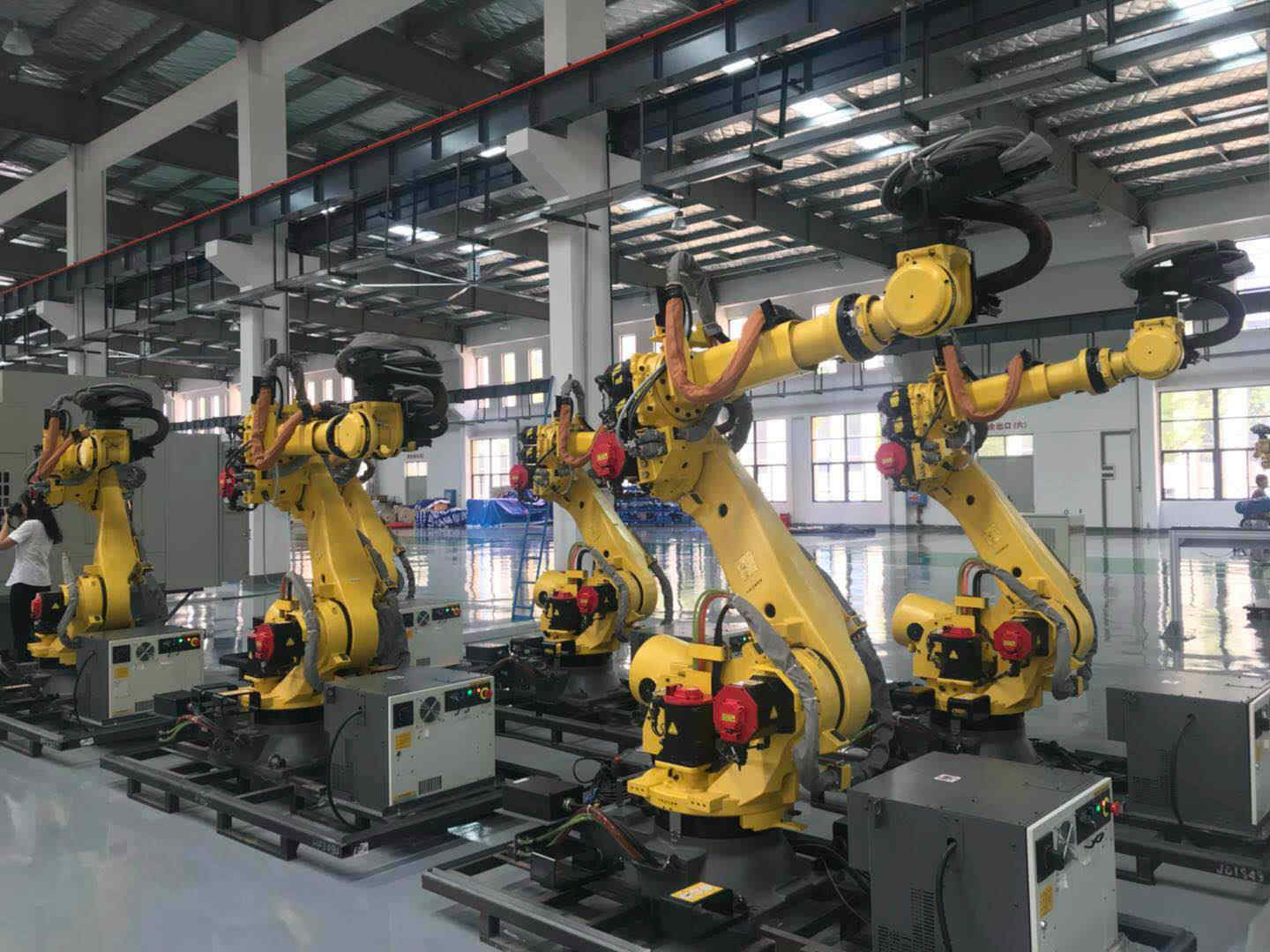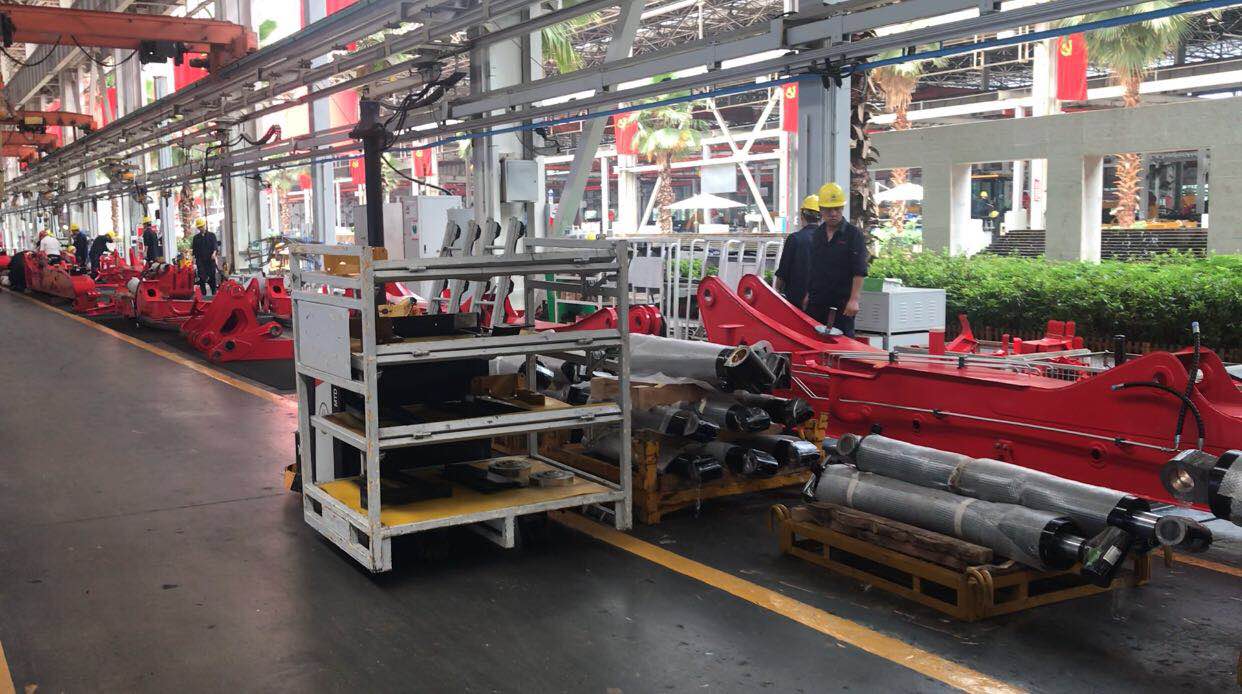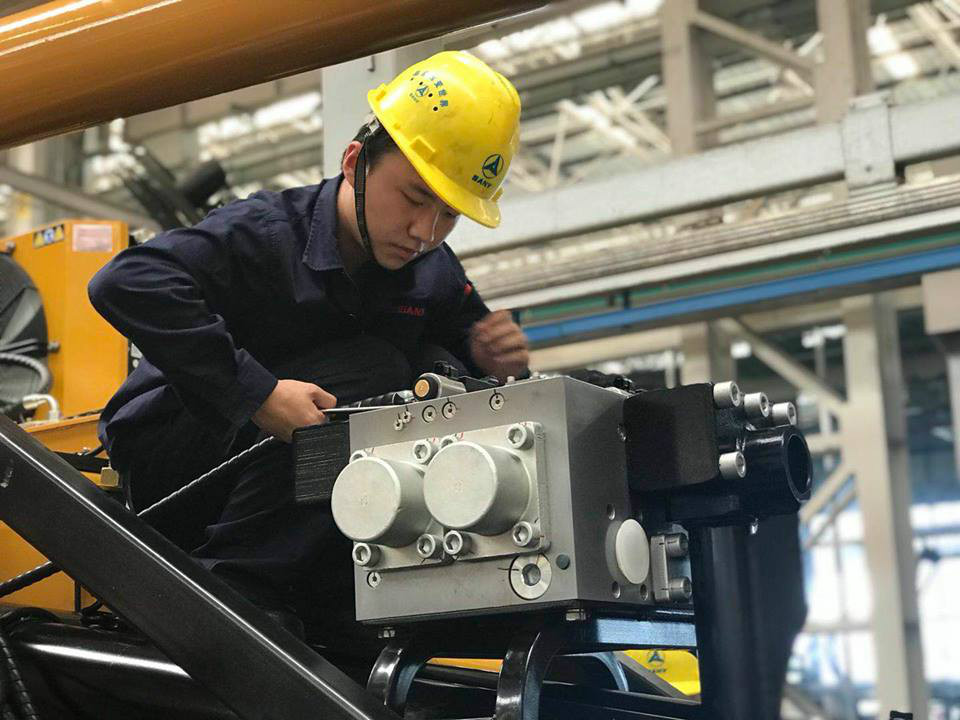


Changsha, capital of central #China’s Hunan province, is transforming into the country’s leading intelligent manufacturing center, by nurturing new-economy enterprises such as Internet of Things, 3D printing, and robotics, as well as by upgrading construction machinery and other traditional industries and even the food industry.
Hunan was once considered a less-developed province in central China. Now, Changsha is striving to establish an intelligent manufacturing hub as a key driver of its economy.
Home to nearly a thousand equipment-manufacturing enterprises, the city currently boasts 330 demonstrative enterprises for intelligent manufacturing, including nine state-level ones.

In Changsha, a new car can be assembled in less than two minutes and a new excavator can be assembled in only five minutes. Changsha also boasts a host of leading intelligent equipment industries, such as the nation’s first intelligent manufacturing and production line for rail transportation products and the first national research and development platform in 3D printing. China’s first domestically built medium-low-speed maglev rail line shuttles between the city’s railway station and airport.
All of the above gives Changsha a new business card for technological innovation.
Sany, China’s biggest heavy equipment manufacturer and which is headquartered in Changsha, is upgrading its businesses with intelligent manufacturing. Its No. 18 workshop in Changsha, which covers 100,000 square meters, is the largest intelligent manufacturing plant in Asia.
Decorated with green plants and a water fountain, the workshop combines a calculating system with traditional operational tools and production equipment. A concrete pump truck can be made out of this workshop in just an hour.
When the team needs materials, assembly-line workers will report it to the stereoscopic warehouse. The distribution system then finds the corresponding vessel and automatically transports that to the hydraulic lift table where the warehouse delivers its products. An unmanned vehicle then drives automatically to claim goods from the hydraulic table and transports the materials to the appointed position according to the laser positioning mark.
As a heavy machinery manufacturing company, Sany is also upgrading its traditional products, upgrading concrete mixers, excavators, and cranes with big data and Internet of Things.
With its self-developed motor controller, the company is able to analyze the whereabouts of its construction machines, said He Dongdong, deputy CEO of Sany.

Dubbed the “excavator index,” the gauge, which tracks 380,000 of the company’s concrete mixers, excavators, and cranes, not only enables it to provide better after-sale services, but also serves as a valuable indicator in gauging the health of the Chinese economy, He explained.
The development of intelligent manufacturing is more obvious in the robotic industry. Chaint Robotics, a high-tech company based in Changsha, designs and produces robotic manufacturing equipment.
In 2014, the company’s iron casting robot represented Team China to attend the IERA Awards, the “Oscar” in the field of robotic manufacturing, and won the top prize for innovation, marking the first time for a Chinese company to win the competition after it joined the International Federation of Robotics.
Inside the company’s workshop, a dexterous robotic arm named Changsha No.1 can shoot basketball skillfully with an accuracy rate of above 90 percent. With such consistency, the robotic arm is widely used in many Chinese industries, such as automobile, electricity, aerospace, and trail transportation.
The popularity of intelligent manufacturing is also spreading to the traditional food industry. Jiajia Food Group, another Changsha-based company, is also engaged in the research and production of seasoning products, such as soy sauce, vinegar, and edible vegetable oil. In addition to its traditional soy sauce production, its rapid development of green and smart manufacturing makes it a leader in the domestic soy sauce industry
Since last year, digitalization has been fully implemented in the process of making soy sauce, which increases the rate of production efficiency and energy utilization by 27.8 percent and 10 percent, respectively. The result of the digital revolution is amazing—10 bottles of soy sauce can be filled in just one second furthermore, the cost is reduced by 21.4 percent.

 Award-winning photos show poverty reduction achievements in NE China's Jilin province
Award-winning photos show poverty reduction achievements in NE China's Jilin province People dance to greet advent of New Year in Ameiqituo Town, Guizhou
People dance to greet advent of New Year in Ameiqituo Town, Guizhou Fire brigade in Shanghai holds group wedding
Fire brigade in Shanghai holds group wedding Tourists enjoy ice sculptures in Datan Town, north China
Tourists enjoy ice sculptures in Datan Town, north China Sunset scenery of Dayan Pagoda in Xi'an
Sunset scenery of Dayan Pagoda in Xi'an Tourists have fun at scenic spot in Nanlong Town, NW China
Tourists have fun at scenic spot in Nanlong Town, NW China Harbin attracts tourists by making best use of ice in winter
Harbin attracts tourists by making best use of ice in winter In pics: FIS Alpine Ski Women's World Cup Slalom
In pics: FIS Alpine Ski Women's World Cup Slalom Black-necked cranes rest at reservoir in Lhunzhub County, Lhasa
Black-necked cranes rest at reservoir in Lhunzhub County, Lhasa China's FAST telescope will be available to foreign scientists in April
China's FAST telescope will be available to foreign scientists in April